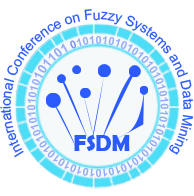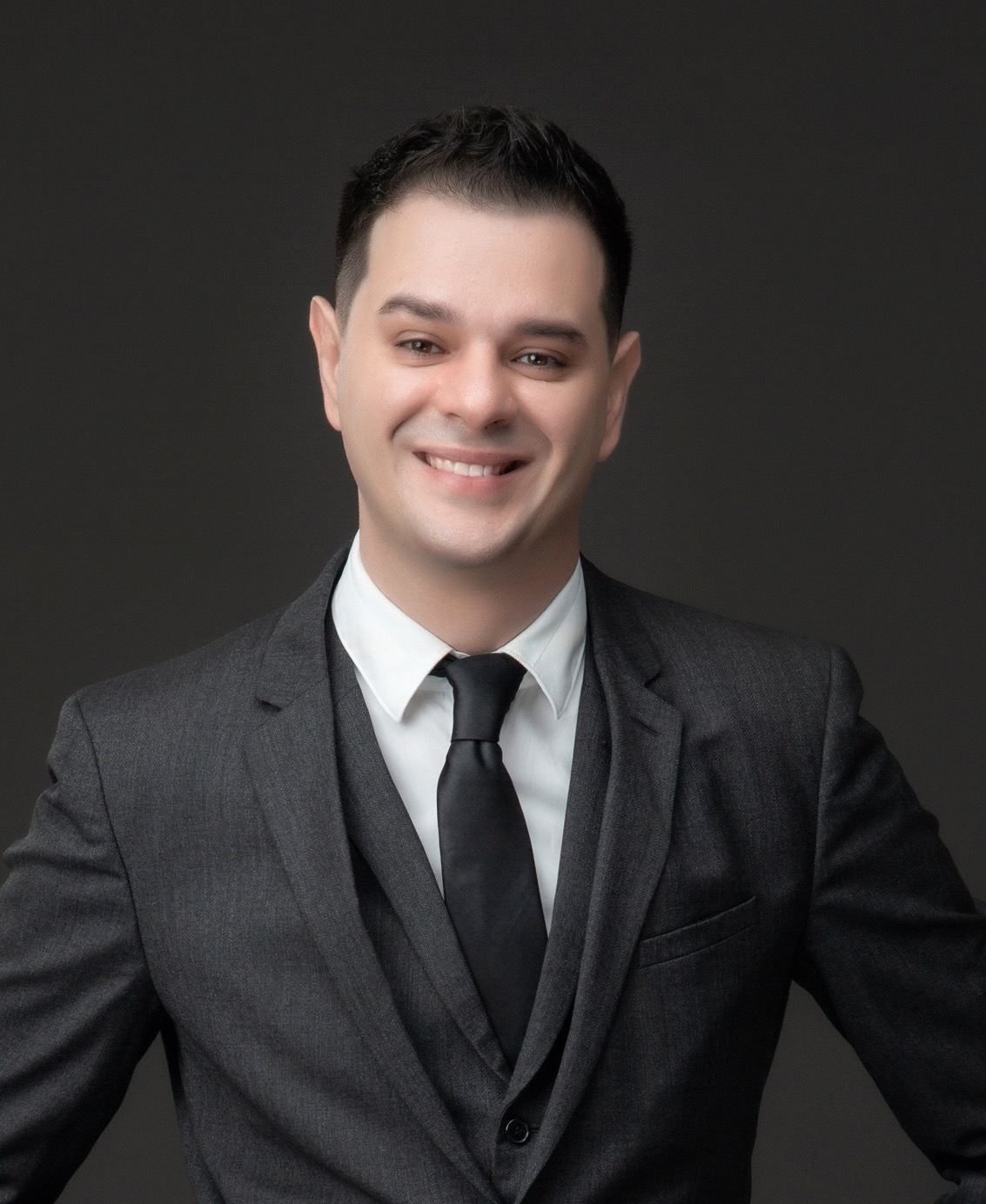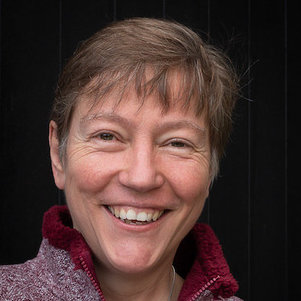Keynote Speakers
Dr. Nikolaos M. Freris, Professor
Vice Dean of the International College; School of Computer Science, University of Science and Technology of China (USTC)Speech Title: Intelligent Transportation: Learning in real-time from distributed data
Abstract: Intelligent Transportation is the primordial example of a Cyberphysical System (CPS), that encapsulates a very large network of “smart” devices (possessing sensing, communication, and computation capabilities) controlling physical entities. Besides, the ever-emerging paradigm of AIoT targets solutions that capitalize the computational power of Internet-of-Things (IoT) devices to enable Artificial Intelligence (AI) in system operations.
This keynote will discuss the CPS/AIoT perspective to Intelligent Transportation, which considers real-time learning in a network of agents with distributed data collection. In specific, I will discuss two problems:
a) Real-time learning of travel time densities via online Sparse Kernel Density Estimation
b) Real-time 3D Multi-Object Detection & Tracking from LiDAR point clouds
Biography: Nick Freris is Professor in the School of Computer Science at USTC, and Vice Dean of the International College. He received the Diploma in Electrical and Computer Engineering from the National Technical University of Athens (NTUA), Greece, in 2005, and the M.S. degree in Electrical and Computer Engineering, the M.S. degree in Mathematics, and the Ph.D. degree in Electrical and Computer Engineering all from the University of Illinois at Urbana-Champaign (UIUC) in 2007, 2008, and 2010, respectively. His research lies in AIoT/CPS/IoT: machine learning, distributed optimization, data mining, wireless networks, control, and signal processing, with applications in power systems, sensor networks, transportation, cyber security, and robotics. Dr. Freris has published several papers in high-profile conferences and journals held by IEEE, ACM, and SIAM and holds three patents. His research has been sponsored by the Ministry of Science and Technology of China, Anhui Dept. of Science and Technology, Tencent, and NSF, and was recognized with the National High-level Talent award, the USTC Alumni Foundation Innovation Scholar award, and the IBM High Value Patent award. Previously, he was with the faculty of NYU and, before that, he held senior researcher and postdoctoral researcher positions at EPFL and IBM Research, respectively.
Dr. Freris is a Senior Member of ACM and IEEE, and a member of CCF and SIAM.
Dr. Gyu Myoung Lee, Professor
Computer Science and Mathematics, Liverpool John Moores University, UK; Korea Advanced Institute of Science and Technology, Rep. of KoreaSpeech Title: Trustworthy Artificial Intelligence of Things
Abstract: Artificial Intelligence (AI) and Internet of Things (IoT) are very important technologies for the future and there are a lot of research activities to combine AI and IoT, called AIoT (Artificial Intelligence of Things). Furthermore, data is becoming essential to support AI based solutions with human interactions. In this regard, this talk introduces key concepts, features and characteristics of human centric AIoT in data driven networking point of view. From AIoT research, many researchers have identified that there are security, privacy and trust concerns to realize human-centric AIoT. To cope with negative effects of AIoT, it’s necessary to address trustworthy AIoT. Therefore, this talk introduces data ecosystem and its features. Then, it presents key challenges for realizing trustworthy AIoT and discuss next steps for future research.
Biography: Gyu Myoung Lee joined the Liverpool John Moores University (LJMU), UK in 2014, as a Senior Lecture in the department of Computer Science and was promoted to a Reader in 2017 and a Professor in 2020. He is also with KAIST Institute for IT convergence, Daejeon, Rep. of Korea, as an Adjunct Professor from 2012.
Before joining the LJMU, he worked with the Institut Mines-Telecom, Telecom SudParis from 2008. Until 2012, he was invited to work with the Electronics and Telecommunications Research Institute (ETRI), Rep. of Korea. He worked as a research professor in KAIST, Rep. of Korea and as a guest researcher in National Institute of Standards and Technology (NIST), USA, in 2007. He worked as a visiting researcher in the University of Melbourne, Australia, in 2002. Furthermore, he also has work experience in industries in Rep. of Korea.
His research interests include Internet of Things, Web of Things, computational trust, knowledge centric networking and services considering all vertical services, Smart Grid, energy saving networks, cloud-based big data analytics platform and multimedia networking and services.
Dr. Lee has been actively participating in standardization meetings including ITU-T SG 13 (Future Networks and cloud) and SG20 (IoT and smart cities and communities), IETF and oneM2M, etc., and currently serves as a Rapporteur of Q16/13 (Knowledge centric trustworthy networking and services) and Q4/20 (e/Smart services, applications and supporting platforms) in ITU-T. He is also the chair of ITU-T Focus Group on Data Processing and Management (FG-DPM) to support IoT and smart cities & communities. He has contributed more than 300 proposals for standards and published more than 100 papers in academic journals and conferences. He received several Best Paper Awards in international and domestic conferences and served as a reviewer of IEEE journals/conference papers and an organizer/member of committee of international conferences. He is a Senior Member of IEEE.
Dr. Catholijn M. Jonker, Professor
Interactive Intelligence group, Faculty of Electrical Engineering, Mathematics and Computer Science of the Delft University of Technology, NetherlandsSpeech Title: The Effectiveness of Bidding Support in Negotiation
Abstract: We present a dependency analysis and a categorization of future and existing economic decision support mechanisms for negotiation. Our survey suggests that active mechanisms would be more effective than passive ones, and that implicit mechanisms can shield the user from mathematical complexities. We discuss results of empirical studies of the effectiveness of the bidding support mechanisms of the Pocket Negotiator, an economic decision support system.
Furthermore, we discuss the open challenges, and report about the community efforts as can be seen from the Annual Negotiating Agents Competition.
Biography: Catholijn Jonker (1967) is full professor of Interactive Intelligence at the Faculty of Electrical Engineering, Mathematics and Computer Science of the Delft University of Technology. Jonker studied computer science, and did her PhD studies at Utrecht University. After a post-doc position in Bern, Switzerland, she became assistant (later associate) professor at the Department of Artificial Intelligence of the Vrije Universiteit Amsterdam. From September 2004 until September 2006 she was a full professor of Artificial Intelligence / Cognitive Science at the Nijmegen Institute of Cognition and Information of the Radboud University Nijmegen. She chaired De Jonge Akademie (Young Academy) of the KNAW (The Royal Netherlands Society of Arts and Sciences) in 2005 and 2006, and she was a member of the same organization from 2005 to 2010. She is a member of the Koninklijke Hollandsche Maarschappij der Wetenschappen andof the Academia Europaea. She was the president of the National Network Female Professors (LNVH) in The Netherlands from September 2013 till January 2016. She served TU Delft for one year as interim head of department for the Design Engineering Department (2014/2015). Catholijn is EurAI Fellow since 2015, and EurAI board member since 2016, EurAI is the European Association for Artificial Intelligence.
Her publications address cognitive processes and concepts such as negotiation, teamwork and the dynamics of individual agents and organizations. In all her research lines Catholijn has adopted a value-sensitive approach. In particular, she works towards intelligent agents that can interact with their users in value-conflicting situations when also meta-values no longer solve the situation. In Delft she works with an interdisciplinary team to create synergy between humans and technology by understanding, shaping and using fundamentals of intelligence and interaction. End 2007 her NWO-STW 1.5 M€ VICI project “Pocket Negotiator” has been awarded. In this project she develops intelligent decision support systems for negotiation. An experimental version of the Pocket Negotiator can be found at:http://ii.tudelft.nl/negotiation/index.php/Pocket_Negotiator.
Dr. Milan Tuba, Professor
Vice Rector for International Relations, Singidunum University, SerbiaSpeech Title: Progress and Open Questions of Convolutional Neural Networks
Abstract: Artificial intelligence and machine learning algorithms have become a core of numerous applications used in medicine, security, agriculture, astronomy, and many more. In general, these applications require a classification method, usually for the classification of digital images. In decades of intensive study of the classification problem, various classification methods were proposed and used. However, in recent years, the convolutional neural networks have proven to be a far better method for certain classification problems and have brought some revolutionary changes in certain areas. Convolutional neural networks (CNNs) are the type of deep artificial neural networks that manage to significantly improve classification accuracy, especially of digital images. Using, creating and training CNN is a relatively simple task due to the various available software tools, but the problem with CNNs is finding the optimal configuration and architecture. Designing and tuning CNN represents a very challenging problem that should be dealt with in order to achieve the best possible results. The optimal CNN’s configuration depends on the considered problem and one CNN that is good for one problem is not necessarily good for others. Finding the optimal configuration is not a simple task since there are numerous hyperparameters such as the number, type and order of layers, number of neurons in each layer, kernel size, optimization algorithm, padding, stride, and many others, that should be fine-tuned for each classification problem. There is no unique efficient method for finding optimal values of CNNs’ hyperparameters. A commonly used method for setting the CNN’s configuration is to guess good starting values and estimate better values for the hyper-parameters (guestimating). This method is simple but not the most efficient. Since this is an optimization problem, some recent studies tested different optimization metaheuristics such as swarm intelligence algorithms. Usage of swarm intelligence algorithms for finding CNNs’ configuration can be time consuming but the improvement of the classification accuracy is significant. In this talk, the advantages and challenges of finding the optimal CNN configuration will be presented.
Biography: Milan Tuba is the Vice Rector for International Relations, Singidunum University, Belgrade, Serbia and was the Head of the Department for Mathematical Sciences at State University of Novi Pazar and the Dean of the Graduate School of Computer Science at John Naisbitt University. He is listed in the World's Top 2% Scientists by Stanford University in 2020 and 2021. Prof. Tuba is the author or co-author of more than 250 scientific papers (cited more than 5000 times, h-index 42) and editor, co-editor or member of the editorial board or scientific committee of number of scientific journals and conferences. He was invited and delivered around 60 keynote lectures at international conferences.
He received B. S. in Mathematics, M. S. in Mathematics, M. S. in Computer Science, M. Ph. in Computer Science, Ph. D. in Computer Science from University of Belgrade and New York University. From 1983 to 1994 he was in the U.S.A. first at Vanderbilt University in Nashville and Courant Institute of Mathematical Sciences, New York University and later as Assistant Professor of Electrical Engineering at Cooper Union School of Engineering, New York. During that time he was the founder and director of Microprocessor Lab and VLSI Lab, leader of the NSF scientific projects and theses supervisor. From 1994 he was Assistant Professor of Computer Science and Director of Computer Center at University of Belgrade, from 2001 Associate Professor, Faculty of Mathematics, University of Belgrade, from 2004 also a Professor of Computer Science and Dean of the College of Computer Science, Megatrend University Belgrade. Prof. Tuba was the principal creator of the new curricula and programs at the Faculty of Mathematics and Computer Science at the University of Belgrade and later at John Naisbitt University where he was the founder and practically alone established a complete new school with bachelor, master and PhD program. He was teaching more than 20 graduate and undergraduate courses, from VLSI Design and Computer Architecture to Computer Networks, Operating Systems, Artificial Intelligence, Image Processing, Calculus and Queuing Theory.
His research interest includes nature-inspired optimizations applied to image processing, computer networks, and neural networks. Member of the ACM, IEEE, AMS, SIAM, IFNA, IASEI.
More speakers will be updated soon...




